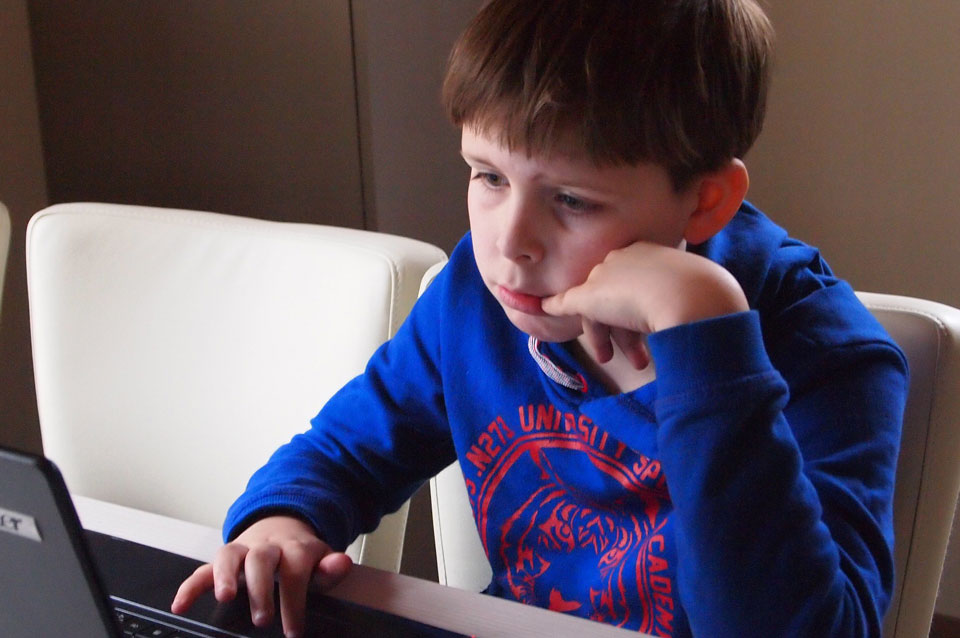Processing speed refers to how quickly an individual can process information, i.e. the speed at which they can react to incoming information, understand it, think about it, formulate a response and execute that response. Processing speed is not the same as intelligence; it is possible to be gifted yet process information slowly compared to peers. Similarly, processing speed is not the same as physical quickness; it is possible to have very quick physical reactions and yet process information slowly.
What Causes Slow Processing Speed
Processing speed is influenced by a variety of factors. Neurologically, processing speed is affected by neurotransmitters in the brain and their balance; by the fatty covering of neurons (myelin) that speeds transmission; by the size of synaptic spaces (usually large synaptic gaps slowing information processing); by the organisation of neural networks that support a concept or procedure; and by the efficiency of frontal lobes in organising and directing information flow.
Slow processing speed can be caused by damage to the neurological pathways. However, more often, young people process information slowly as a result of difficulty controlling attention, inefficient access to stored knowledge and skills, or breakdowns in the systems that support organised thinking and processing. Furthermore, impaired self-regulation (or executive function impairment) can result in slowed processing because of weak control over attention. Conversely, slow processing can underlie problems that may be identified as attention, memory, organisation, language or executive function problems. For example, slow processing is known to result in difficulties with shifting and dividing attention tasks, with memory and retrieval tasks, tasks that require cognitive flexibility, and with problem-solving tasks. From an emotional perspective, slow processing can be a consequence of depression or anxiety, or simply a focus on unrelated issues as a result of emotional struggles. Certain medications may also cause slow processing.
Helping Children with Slow Processing Speed
Slow processing speed can generally be observed in all types of tasks, particularly those that are cognitively demanding (e.g. academic tasks in school; social activities like chatting with peers). However, when tasks or activities become increasingly routine or automatic, even slow processors of information may appear to be unaffected. For example, a child who normally processes information slowly may repeatedly practise a video game to the point at which he or she plays the game at the normal speed. Because slow processing has a lesser effect when tasks are routine, making learning activities as routine or automatic as possible will have a beneficial effect on students.
It is also important to understand about slow information processing because it can easily be misinterpreted as a behaviour problem. For example, learners who do not respond to teachers’ questions or instructions within a usual timeframe may be considered defiant or manipulative. Alternatively, teachers may interpret this behaviour as attention-seeking.
The more an individual knows about a topic, the easier it is to process new information about that topic quickly. Equally, the more experience an individual has with an activity, the easier it is to react and think quickly. For example, children and adults alike playing a new game – board game, card game, video game or sport – take a great deal of time to do what takes very little time once the game is mastered. Similarly, when foreign languages are unknown, they sound as though they are spoken very rapidly, but once the language is more familiar, it seems to slow down. Therefore, “familiarity with the game”, including thorough familiarity with routines in school and increasing content knowledge and skill level, is very important for individuals who process information slowly.
How to Accommodate Slow Processing in Children
- Establish daily routines: Children who process information slowly should thoroughly understand the sequence of activities that comprise their daily routines at home and at school. If they also have organisational or working memory impairments, the daily routine should be graphically represented (e.g. a sequence of photographs, drawings, or short written outline) for easy viewing and understanding.
- Provide good instructional routines: Teachers should ensure that all components of the instructional routine are well understood – that is, becomes background information – so that the child’s limited processing resources can focus on the new, to-be-learned information.
- Slower pace of instruction; right for the child: It might seem natural to slow the pace of instruction and interaction for a child who processes information slowly. The pace should be no faster than the child can tolerate and there should be appropriate pauses between separate units of information. However, slowing the pace too much may result in difficulty sustaining attention. If the instructional routine is well-understood, the pace of instruction can be increased to ensure continued attention to task.
- Organisational supports: Children who process information slowly often have organisational problems as well – or in some cases the organisational problems are a cause of the slowness. Organisational supports can be as simple as a checklist, outline of a task or a graphic organiser for the task (e.g. a series of photographs or pictures that indicate the sequence of an activity; a series of boxes and connecting arrows depicting the key elements of a task).
- Nonverbal supports: Spoken language may be experienced as coming too fast for children who process information slowly. Therefore, it may be critical to repeat information and provide nonverbal supports to help the child comprehend. Nonverbal supports can include pictures, symbols, written words, written outlines and gestures.
- Verification of comprehension: Parents and teachers should verify that the child has understood the instructions or other information before proceeding to new information. Verification may include asking the child to repeat instructions or summarise new information.
- Peer support: Children who process information slowly sometimes benefit from peer buddies or cooperative learning groups in which other students may take responsibility for organisational aspects of the academic tasks.
How Children Can Help Support Their Processing Speed
- Content knowledge: The more a child knows about a domain of knowledge, the easier it is to process new information in that domain. If they understand this about their abilities, they may be more engaged when the learning is difficult at the start.
- Request help: Children who process information slowly should be taught to advocate for themselves, for example by saying with confidence and in safety, “Could you slow that down please? I need time” or “Could you repeat that for me please?” Children can also be taught to ask for organisational supports such as those outlined above.
- Additional time to complete tasks: Children who process information slowly need additional time to complete tasks. They should be encouraged to create a habit of starting projects and assignments early so that they are not rushed to complete tasks. They may need to advocate for additional time to complete timed tasks.
Children who process information slowly tend to be affected in their reactions to incoming information, understanding it, thinking about it, formulating a response to it and executing that response, which in turn can affect both organisation and social experiences. However, when responses become routine or automatic, processing speeds up. Understanding how slow processing affects children’s learning goes a long way to being able to support them and the accommodations above will serve to greatly enhance their learning experiences and, therefore, achievement.
Further Resources
- Blog: Working Memory – A Brief Guide
- Advice Sheet: Working Memory – Tapping Potential
- Blog: Executive Function Skills – Simplifying a Young, High Potential Learner’s ‘Thinking’ and ‘Doing’
- Advice Sheet: Executive Function Skills
About the author: Rebecca Howell is Potential Plus UK’s Senior Education Consultant. She leads various aspects of the organisation, including oversight of the assessment and advice services. She is passionate about leadership and developing new services to support members. With a background in educational leadership, she has 3 children with high learning potential/dual or multiple exceptionality.







